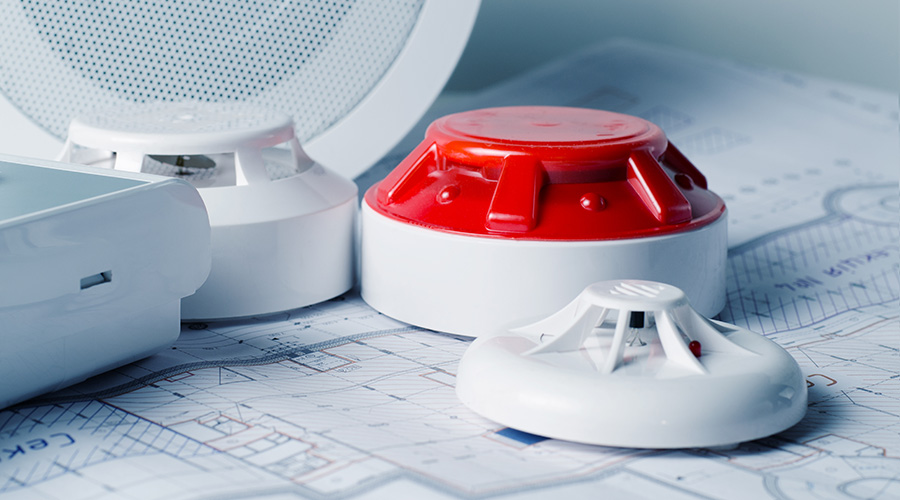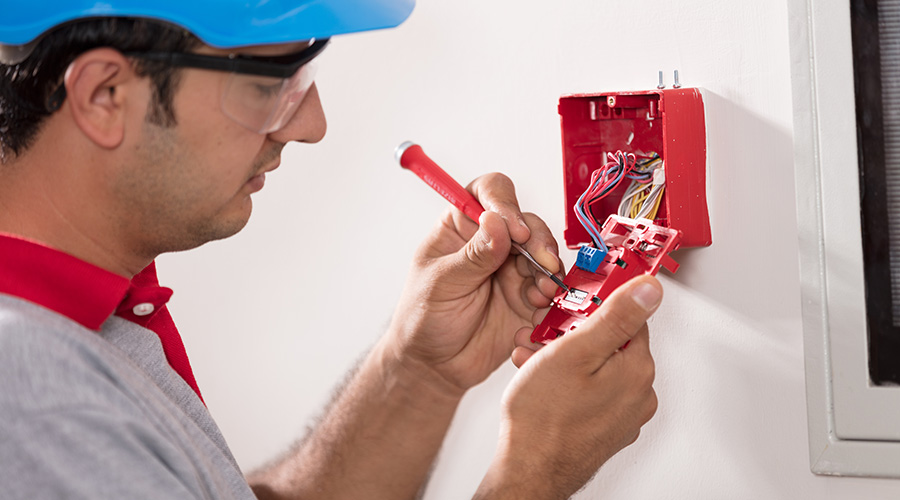Nine Reasons Building Owners Should Have New Fire Alarm Systems Tested
Understanding that fire alarms are life safety systems, it is important to make their effectiveness a chief concern for all building operators. There are at least nine good reasons building owners should have new fire alarm systems tested. Cost, inconvenience, and lack of time or knowledge are common but unacceptable reasons to not thoroughly test your fire alarms — and the responsibility to do so lies with everyone.
Professional engineers and designers should make every effort to have a trained and competent person thoroughly test every new fire alarm system that they design. This would be over and above any testing performed by the system installer. Building owners should also make it mandatory that the fire alarm system be tested by the engineer of record. This includes every device in the building along with the automatic notification to the monitoring service if used. When finished, the engineer of record should issue a comprehensive record of the testing to the owner, contractor, and local AHJ. This also serves as a valuable record in the event you find yourself having to defend the design in a court of law.
So how can a thorough fire alarm test positively impact your building?
1. It will save lives. According to the National Fire Protection Associations (NFPA), most fire deaths are not caused by burns, but by smoke inhalation. Often smoke incapacitates so quickly that people are overcome and can’t make it to an otherwise accessible exit. Fire alarm and detection systems are designed and installed to detect and warn the occupants of a building during the incipient stage of the fire. A system that is designed and installed correctly provides adequate time for the occupants to safely evacuate a building and to alert local first responders to the impending danger.
2. Proper testing assures you that the fire alarm system is operating at optimum performance and the integrity of the system has not been compromised during or subsequent to the installation.
3. Conducting initial system tests helps verify that the installation complies with the design documents and meets all the applicable requirements found in NFPA 72 and any other applicable codes or standards. In addition, the initial testing will verify that every portion of the system operates in accordance with the detailed sequence of operation.
4. Early detection plays a significant role in protecting the safety of emergency response personnel. Most alarm systems provide information to emergency responders on the location of the fire, speeding up the fire control process.
5. Property loss can be reduced and downtime for the companies located in the building can be minimized through early detection because control efforts are started while the fire is still small.
6. The most stringent standards and guidelines are meaningless unless the system has actually been proven to perform as designed.
7. Proper testing prevents false alarms and associated costs when fire trucks are unnecessarily dispatched to the building.
8. Without proper testing, the engineer of record cannot attest to or document with any certainty what state the fire alarm system was in at the time the system was turned over to the owner.
9. The engineer of record could be open to professional negligence in some states if they do not review or certify that the fire alarm system was installed to meet the plans and specifications. The building owner can also be held negligent if proper testing was not performed and documented.
Testing guidelines need to be tailored to individual project requirements and as the project grows, so does the complexity of the testing requirements. Experienced design professionals should be engaged to develop the testing guidelines and witness testing as it occurs.
James (Jim) Wise is an electrical engineer and associate at RMF Engineering, Raleigh, N.C. He has more 42 years of experience designing electrical systems. His design specialties include emergency power generation, uninterruptible power supply systems, fire alarm systems, and power distribution for various facilities and campus environments. He can be reached at jim.wise@rmf.com.
Related Topics:













